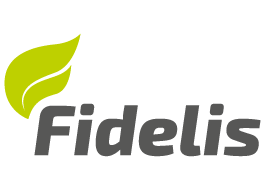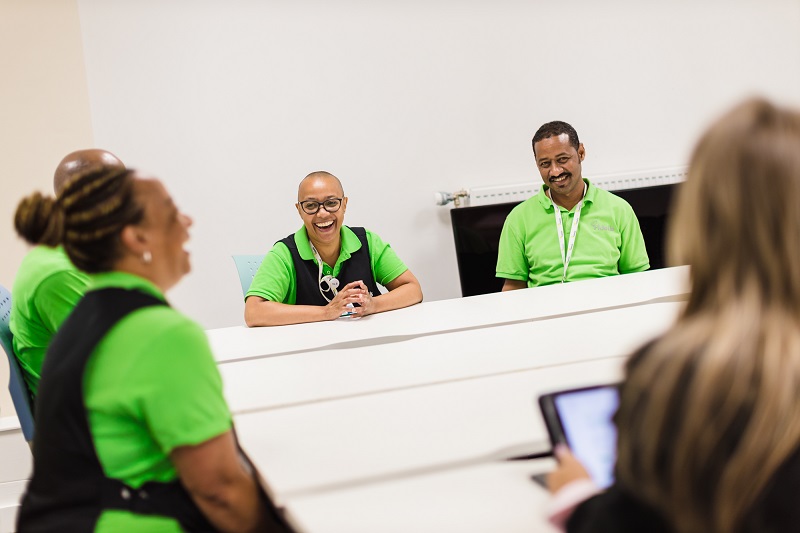FAQs
What is TUPE and why is it important?
TUPE (the Transfer of Undertakings Protection of Employment) regulations were introduced to protect the rights of employees when a contract – such as a commercial cleaning agreement – transfers from one company (e.g. you) to another (e.g. Fidelis).
If, for instance, you chose to outsource your cleaning duties to us, we’d become responsible for the employment, management and wages of any existing cleaning operatives in your business. These operatives may also be trained by us and would work to our processes, meaning you get the best return on your cleaning investment without any disruption.
The regulations are designed to protect employee rights but they also simplify the process of outsourcing for employers to leave you with more time and resources to spend on core business responsibilities.
How do you cover cases of absence, holiday and sickness?
Our large inhouse team of specialist trained cleaning operatives allows us to be incredibly flexible – so whenever an operative is absent (planned or unplanned), we can fully utilise our network of operatives to ensure there is no shortfall in cover, and your site is not impacted
How do you monitor time and attendance?
We use Timegate to manage and monitor our operatives’ time and attendance. This software can be tailored to the site and comes in various different device formats such as an app with GPS, biometric technologies and handset. This data input feeds our time and attendance system and payrolls our operatives. This allows us to have real-time information and moves away from the old fashioned pen and paper methods.
How do you maintain and monitor standards?
We ensure our audits are reflective of our Service Level Agreement (SLA) and they can be tailored to suit site and frequency. We normally carry out our auditing process every 4-6 weeks to ensure all work meets standards agreed by the customer and the specification.
Your dedicated contracts manager will complete this process using a tablet device collecting photographic evidence with actions. The audit is also tracked by GPS,and is time and date stamped. The information collated from the audit is then shared with our operatives in aconstructive manner and can form part of our monthly meetings, too.
Can you quote for a set number of hours?
Yes, and we always carry out a time and motion exercise first to ensure any time-based quotes are accurate.
How much do you charge per hour?
There are a variety of factors that influence our charge rates, including operative pay rates and TUPE. While there’s no set rate, we use these factors to ensure your requirements are met in the most accurate and cost-efficient way.
Which cleaning products do you use?
We use a well-refined family of safe, high-quality chemicals and agents that we and our operatives know extremely well. These products – from the CloverIT range – have simple pictorial instruction labels which match the national colour-coded standards and processes to prevent accidental misuse and cross-contamination. All products are supplied as necessary to complete the specified duties.
Do you use safe cleaning products?
As well as effectiveness, all chemicals and agents supplied are chosen for environmental friendliness and are compliant with COSHH (The Control of Substances Hazardous to Health Regulations) regulations. What’s more, all Fidelis site operatives are trained to advanced COSHH certification.
You can find out more about the range of products we use here.
Why is cleaning a workplace important?
Rather than see it only as an unavoidable cost, treat cleaning as an investment in your business’ development. With the right cleaning strategy and expertise, you can protect the welfare and morale of employees and visitors, while also projecting a professional image to customers – and maintaining a clean and conforming environment.
And at a time when infection control is so important, effective cleaning and disinfection are also vital for business continuity – with so much at stake, it’s simply not worth cutting corners.
Head here to learn more about the benefits of effective commercial cleaning.
How often should you have your workplace cleaned?
The answer to this depends on a number of factors, including the size of your premises, the number of employees, the frequency of visitors and also what your site does. However we do recommend from a commercial point of view washroom facilities, kitchens/ canteens and communal areas with high traffic are done as a minimum every working day.
Every organisation we work with is an individual with its own requirements, so we’ll always start by assessing your circumstances before recommending a cleaning strategy. When we’ve determined the most suitable strategy, we can provide cleaning and infection control services around the clock to minimise disruption and get the best possible results.
Cleaning vs. housekeeping vs. disinfecting… what’s the difference?
An effective cleaning strategy can involve reactive cleaning, preventative cleaning and infection control.
Our deep cleaning services restore spaces to their immaculate best, while housekeeping services ensure these spaces remain in great, work-friendly condition. And both of these types of services play a part in controlling infection to keep employees, customers and visitors safe.
Learn more about the different types of cleaning services we offer, and why each is important in a post-pandemic world.

